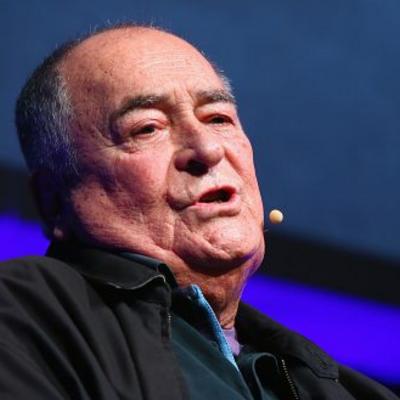Bernardo Bertolucci at a Glance
- Categories: Celebrities, Celebrities > Directors
- Net Worth: $40 Million
- Birthdate: Mar 16, 1941 - Nov 26, 2018 (77 years old)
- Birthplace: Parma
- Gender: Male
- Profession: Film director, Screenwriter, Writer, Film Producer, Actor
- Nationality: Italy
Bernardo Bertolucci’s Net Worth: A Look at the Life and Legacy of the Acclaimed Director
Introduction: The Life and Career of Bernardo Bertolucci
Bernardo Bertolucci was an Italian film director and screenwriter, celebrated for his visually stunning and often controversial works. This article delves into the life, career, and net worth of this influential figure in cinematic history.
Early Life and Literary Beginnings
Born on March 16, 1941, in Parma, Italy, Bernardo Bertolucci was immersed in a creative environment from a young age. His father, Attilio Bertolucci, was a well-respected poet, and young Bernardo initially aspired to follow in his father’s footsteps. At fifteen, he began writing and soon garnered several prestigious literary awards, hinting at a promising career in poetry. However, his artistic path would soon take a different turn, leading him to the world of cinema.
The Transition to Cinema: From Poetry to Film
Despite his early successes in literature, Bertolucci’s passion shifted towards the moving image. He abandoned his initial ambitions to become a poet and instead embraced the possibilities of filmmaking. This transition marked a pivotal moment, setting the stage for a prolific career that would leave an indelible mark on global cinema.
Iconic Films and Critical Acclaim
Bertolucci’s filmography is extensive, featuring a diverse range of projects that have captivated audiences and critics alike. Some of his most notable works include:
- The Conformist (1970): A visually striking film exploring themes of political corruption and moral ambiguity.
- Last Tango in Paris (1972): A controversial yet critically acclaimed film known for its raw portrayal of emotions.
- 1900 (1976): An epic historical drama that examines the social and political landscape of Italy.
- The Last Emperor (1987): A historical epic that won all nine Academy Awards for which it was nominated, including Best Picture and Best Director.
- The Sheltering Sky (1990): A visually stunning adaptation of Paul Bowles’ novel, set in North Africa.
- Stealing Beauty (1996): A coming-of-age story set in the picturesque Tuscan countryside.
- The Dreamers (2003): A provocative film exploring themes of youth, revolution, and cinema.
These films demonstrate Bertolucci’s versatility and his ability to tackle complex themes with artistry and sensitivity.
“Last Tango in Paris” and the Controversy
Among Bertolucci’s extensive filmography, “Last Tango in Paris” stands out not only for its artistic merit but also for the controversy it ignited. The film’s explicit content, including a scene depicting anal rape, sparked widespread debate about the boundaries of artistic expression. The graphic nature of the scenes and the way the film depicted women led to significant criticism. In 2013, Bertolucci expressed regret over his treatment of actress Maria Schneider, who was only nineteen at the time of filming and had no prior acting experience. He admitted to withholding information from her to elicit a more realistic performance, a decision he later regretted, acknowledging the potential impact on a young, inexperienced actor. The film’s co-star, Marlon Brando, also expressed his disapproval and refused to speak to Bertolucci for years due to the trauma associated with the film’s controversial elements.
Awards and Recognition
Bertolucci’s contributions to cinema were widely acknowledged through numerous awards and accolades throughout his career. Notable achievements include:
- Academy Awards: “The Last Emperor” won all nine Academy Awards for which it was nominated in 1988, including Best Picture and Best Director.
- Golden Lion Award: Received at the 2007 Venice Film Festival for his life’s work.
- Honorary Palme d’Or Award: Awarded at the opening ceremony of the 2011 Cannes Film Festival.
- Cinematographic and Filmography Awards: Received sixteen cinematographic awards and twenty-four filmography awards between 1962 and 2012.
These awards highlight Bertolucci’s significant impact on the world of cinema and his enduring legacy as a master filmmaker.
Death and Legacy
Bernardo Bertolucci passed away on November 26, 2018, in Rome, Italy, at the age of 77. His death marked the end of an era in Italian and international cinema. Bertolucci’s films continue to be studied and admired for their visual artistry, complex narratives, and exploration of profound human experiences. He left behind a legacy as one of the most important filmmakers of the 20th and 21st centuries.
Bernardo Bertolucci’s Net Worth at Death
At the time of his death in 2018, Bernardo Bertolucci’s net worth was estimated to be $40 million. This figure reflects his success as a director and screenwriter, as well as his influence in the film industry.
Conclusion: Remembering Bernardo Bertolucci
Bernardo Bertolucci’s life and career represent a remarkable journey of artistic exploration. From his early literary pursuits to his groundbreaking cinematic achievements, Bertolucci’s legacy is defined by innovation, controversy, and a profound commitment to the art of filmmaking. His films continue to challenge and inspire audiences worldwide, cementing his place as a true icon of cinema.

